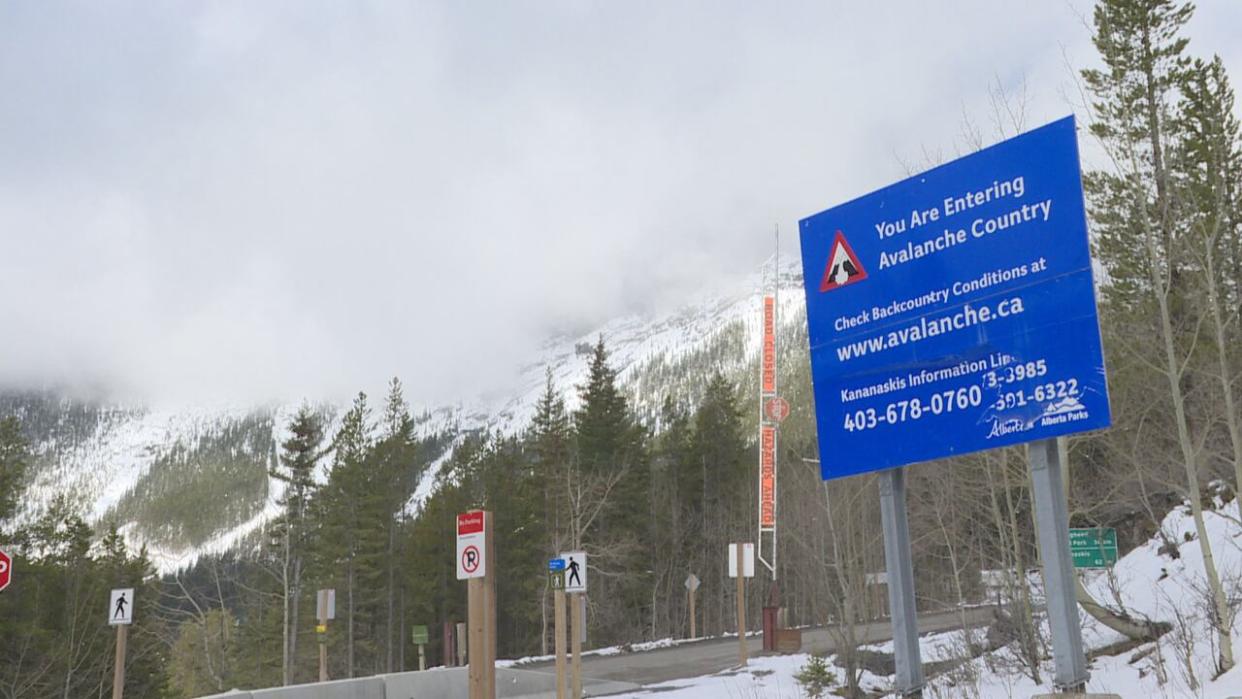Recent snowfall and expected warm weather raise avalanche risk in Kananaskis Country

Snowfall over the past week has raised the risk of avalanches in Kananaskis Country, according to Avalanche Canada.
The agency rated the danger level in the recreation area west of Calgary as high, a four on a scale of five, meaning very dangerous.
In a statement on its website, the organization said parts of the region are intermittently closed for avalanche control using explosives.
It said that wet slab avalanches were seen as high as 2,600 metres on all aspects, adding that avalanche terrain should be avoided Friday.
"This storm had about 60 centimetres of snow at its upper levels, and it felt fairly warm," said Mike Koppang, a mountain rescue specialist with Alberta Forestry and Parks.
Koppang explained that with large snowfalls and warmer weather, the snow layer underneath the fresh layer settles fairly fast and becomes very reactive, increasing the risk of an avalanche.
With temperatures forecasted to rise this weekend, he said avalanches should be expected.
"These are wet avalanches … it's kind of like wet concrete," Koppang said.
"Anything associated with the snow pack right now, with the massive loading of new snow and a bit of wind, we're going to see an avalanche occur."
Danger ratings are based on a five-level scale, with one being low risk and five, the highest danger level, being extreme.
Avalanche Canada issues rankings for three elevation levels — alpine, treeline and below treeline.
The ratings are expected to remain high on Saturday for alpine and treeline but drop to a three, or considerable risk, below treeline.
On Sunday, the risk drops to a three for all levels of elevation.
"If triggered, loose wet avalanches may step down to deeper layers resulting in larger avalanches," the agency said.
"Keep in mind that wet avalanches can be destructive due to their high density."

 Yahoo News
Yahoo News 
